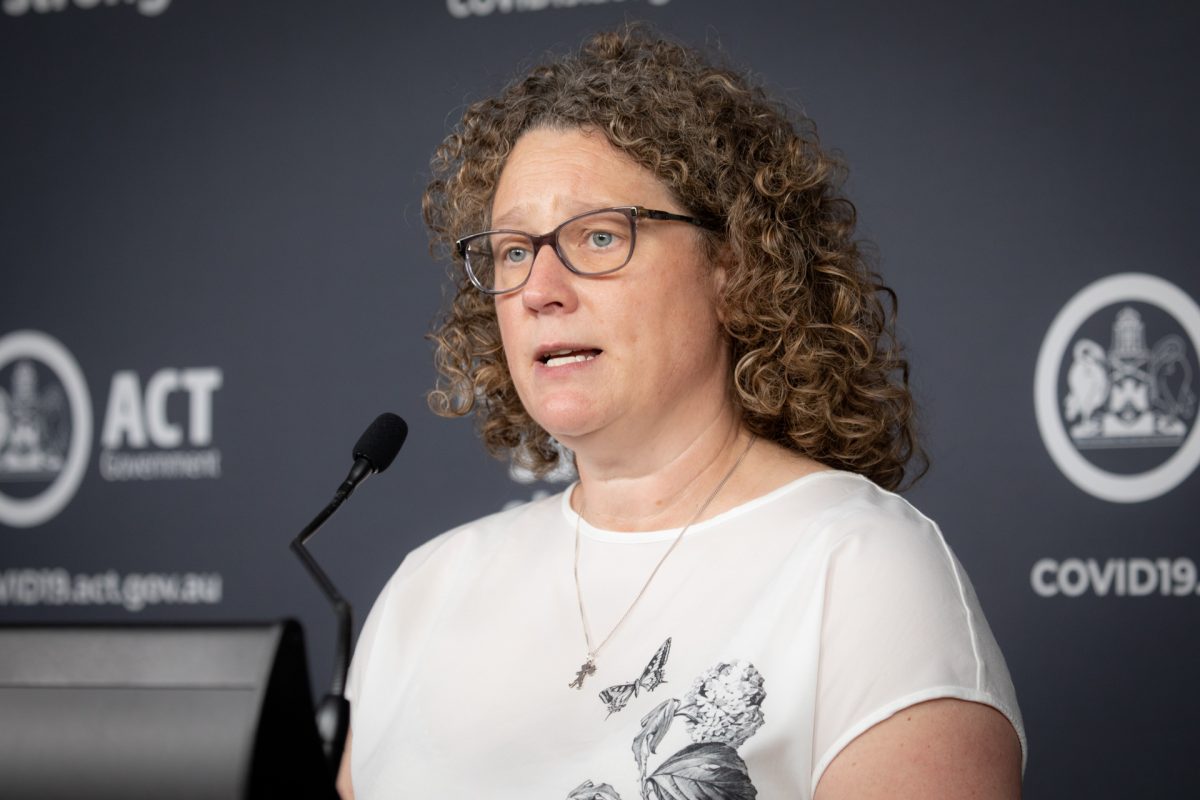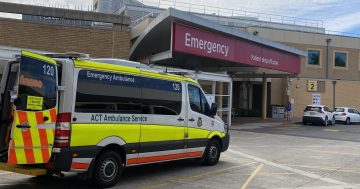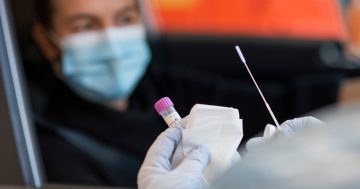
ACT Chief Health Officer Dr Kerryn Coleman has warned daily caseloads could hit 2000 or even 3000 in the coming weeks. Photo: Michelle Kroll.
As the Territory records another day with a daily caseload north of 1000 and two more deaths, ACT Chief Health Officer Dr Kerryn Coleman issued a bleak warning: the worst is yet to come.
The death of a man in his 70s and a man in his 80s with COVID-19 overnight bring Canberra’s pandemic death toll to 84.
Speaking to reporters today, Dr Coleman said the current COVID-19 wave – driven by the spread of the BA.4 and BA.5 subvariants of Omicron – could peak with daily caseloads between 2000 and 3000.
But that modelling was based on a number of uncertainties, she said.
She said that this wave would peak at the end of July or early August.
As case numbers rise, hospitalisations will climb, with Dr Coleman envisaging these would peak around 200. Deaths are also expected to rise, coinciding with cases.
As health authorities have been warning for months, this winter’s wave is being complicated by the spread of other respiratory illnesses like RSV and influenza.
The Chief Health Officer, who today held her first major press conference in months, called for personal responsibility rather than mandates and restrictions to manage this “really challenging” period.
The CHO said it would take the emergence of a much more severe strain of COVID-19 for authorities to reconsider implementing restrictions.
“We are not currently looking at mandates … but I am strongly urging everyone to do what you can to help minimise transmission,” she said.
“The coming wave of COVID-19 is serious and we all need to work together.”
Those actions include wearing masks in crowded settings, being up to date with vaccination, staying at home when ill, knowing whether you are eligible for antivirals and how to access them, avoiding high-risk settings when ill, and working from home if possible and practising good hand hygiene.
Dr Coleman suggested mandates were too heavy-handed and could result in negative outcomes. She said she expected Canberrans to step up and recognise the serious nature of the current period.
At midnight today, the reinfection period for COVID-19 will be reduced from 12 weeks to 28 days, in line with national advice.
That means a recovered person will be required to test for COVID-19 again if they develop symptoms and report a positive result 28 days after being cleared from their first infection.
The Territory’s health authorities expect this will drive an uptick in cases, but Dr Coleman said predicting how many people would catch the virus multiple times was next to impossible.
Locally, there are now 136 patients in Canberra Hospital with the virus. Of these, five are in the ICU and two require ventilation.
There are now 7779 (4279 PCR and 3500 RAT) known active infections in the Territory.
A total of 170,946 (101,889 PCR and 69,057 RAT) COVID-19 cases have been recorded since the pandemic began in March 2020.
The double-dose vaccination rate for the ACT’s five-plus population remains 97.4 per cent and 77.5 per cent of residents aged 16 and older have received a booster.
Of ACT residents aged five to 11, 69.4 per cent have received two doses of vaccine.
Interstate, NSW has reported eight deaths overnight and 7586 new cases of COVID-19.
There are now 2002 people in hospital with the virus and 63 people in ICUs around the state.
Victoria has reported no deaths overnight and 8689 cases of COVID-19.
There are now 717 people hospitalised with the virus and 30 patients are in the state’s intensive care units.




















